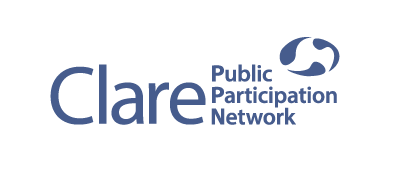Minutes of representatives and secretariat meeting June 3rd 2020
Minutes of Clare PPN Reps meeting
Wednesday, June 3rd, 2020
Present: Damon Matthew Wise, Emma Karan, Eugene Cremins, Fionnuala Collins, George Atijohn, Hilary Tonge, James Giller, Mary Leahy, Mary O’Donoghue, Noel Kearney, Oonagh O’Dwyer, Padraic Hayes, Madeline McAleer, Sarah Clancy, Sarah Ferrigan, William Hederman
Apologies: Aisling Wheeler, Annie Wise, Elaine Dalton, Helen Liddy, Jean O’Keefe
Facilitated by: Sarah Ferrigan
Minutes: William Hederman
UPDATE FROM LAST MEETING
Suggestions on the Work Plan from the last meeting included: developing a Communications Strategy, both media and social media; encouraging people to support local businesses; encouraging people to protect bees and biodiversity.
UPDATES ON COUNTY COUNCIL, SPCs etc
County Council due to meet next Monday, 8th June, in Glór. SPCs due to start meeting in June. This week a call was also made for the LCDC to meet soon.
Several people said the PPN Reps had been ignored for the past three months. The Council has not involved the voice of the community during the pandemic, when in fact this is exactly when community’s input is needed. Agreed that this should be raised, but noted that councillors are not necessarily the ones to target, as they may also be feeling left out.
UPDATE ON FINANCES & RESOURCES AVAILABLE
Sarah Ferrigan gave an update. Once running/fixed costs have been accounted for, we have approx €4,500, to spend mostly on ‘Training & Development’ and ‘Projects & Events’. This is a low amount.
We have pre-paid €1,800 for training in three areas: Cultural Diversity & Anti-Racism; Local Government; Media. This can be online.
We also have paid for some venues for events. And for some transport with Clare Bus.
DISCUSSION ON WORK PLAN
Sarah Clancy: key ambitions are becoming more effective at having the views of community and voluntary sector taken on board at local authority level; and encouraging participation and a sense of ownership of the PPN among people in Clare.
Open discussion – suggestions were based mostly around:
- i) mental health, especially due to effects of lockdown;
- ii) supporting people to retrain, refocus careers, an ideas fair;
iii) seminars / webinars
Noel: Can we include in PPN people with mental health difficulties? Also, we should tie in with Aoife Boland of AIRES Mid West/ HSE.
Sarah C: We can do events around mental health, but note that our role is to influence policy, not to provide service. We need to make sure mental health is considered in all relevant forums. Should we declare that we are a mental health friendly organisation?
Mary O’D: Suggests a poster and a spread in Clare Champion about all the orgs and agencies you can contact if you’re feeling down.
Hilary: Good time to boost the PPN online, as everyone is at home and online. Boost posts. Perhaps a weekly training session; life coaching.
Damon: Disabled People need social events, some don’t use social media very much.
Mary O’Donoghue: Points we are raising here should be expanded and input into Clare LECP (Local Economic and Community Plan), which is up for review soon, and other county-wide plans. Good opportunity to gather people’s views.
Fionnuala Collins : suggests holding an online conference on belonging to a democracy, focusing on the need for open, transparent input and decision-making. Also, we should signpost about options for getting back into the community – classes, social interaction, which places offer counselling, community garden etc
James Giller: Good time to invite public to participate, like the ‘What do we want?’ submissions. Also, pandemic has highlighted discrimination. Ask Council to push for policies to prevent and lessen discrimination. And suggests training for use of online tools.
Madeline: A webinar on ‘Where to post-Covid?’, with follow-up events and trainings, with the PPN leading with the message that community representation needs to be very strong now at decision-making level.
AOB:
Madeline was contacted by a Colin McGann, who is making a documentary on people’s experiences in Clare during COVID:
Please note that we have his contacts but don’t want to share them online
http://www.clare.fm/podcasts/new-documentary-tell-story-clare-covid/
NEXT MEETING:
Monday 15th June, 2020 at 6:30pm
ENDS

